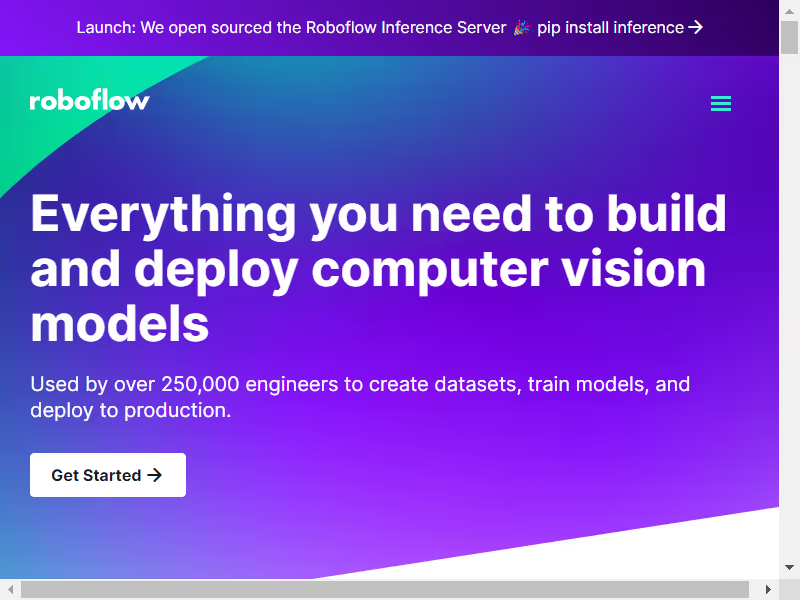
Roboflow envisions a future where visual intelligence is as accessible and intuitive as writing code, enabling a new era of software that sees and understands the world around us. By simplifying and democratizing computer vision technology, Roboflow is building the foundational platform that empowers developers, researchers, and enterprises to create vision applications swiftly and at scale.
We drive this future through innovative, end-to-end tools that handle every stage of the computer vision lifecycle—from image dataset management to model training and deployment across diverse environments. Our open ecosystem and vast repository of datasets foster unprecedented collaboration and accelerate progress across industries.
Roboflow is more than just software; it is a gateway to expanding the boundaries of machine perception and real-world AI application, pushing forward how technology interprets and interacts with visual data to transform businesses and research worldwide.
Our Review
We've been tracking Roboflow since they emerged from Y Combinator in 2020, and honestly, they've impressed us more than we expected. What started as a tool to solve the founders' own AR game development headaches has evolved into something that feels genuinely transformative for computer vision work.
The company's timing couldn't have been better. While everyone was talking about AI democratization, Roboflow actually delivered it — turning what used to be months-long computer vision projects into afternoon experiments.
What Caught Our Attention
The numbers tell a compelling story: over 1 million developers, half the Fortune 100 as customers, and a dataset repository with 500 million images. But what really grabbed us was how they've tackled the annotation problem that makes most developers want to pull their hair out.
We tested their platform ourselves, and the workflow feels surprisingly intuitive. You can go from raw images to a deployed model faster than it takes to explain why computer vision used to be so painful. The fact that they're supporting academic research with over $1 million in credits shows they're thinking beyond just revenue.
The Smart Business Move
Here's what we find clever: instead of building another black-box AI service, Roboflow created infrastructure. They're not trying to own your models — they're making it easier to build, train, and deploy your own. That's why they can work with everyone from BNSF Railway (tracking rail inventory) to sports broadcasters without stepping on toes.
The open-source Roboflow Universe feels like GitHub for computer vision datasets, which is exactly what the community needed. When you're not fighting vendor lock-in, adoption becomes much easier.
Who Should Pay Attention
If you're a developer who's been intimidated by computer vision, this is your entry point. We've seen teams go from zero to production-ready models in ways that would've seemed impossible just a few years ago.
For enterprises, the value proposition is clear: instead of hiring specialized ML teams for every vision project, you can enable your existing developers to handle it. That's a significant competitive advantage in industries where visual automation is becoming table stakes.
Feature
Dataset collection, annotation, and management
Model training and evaluation including custom models
Model deployment on cloud and edge devices
Roboflow Universe: Open-source repository with millions of datasets and images
Extensible and interoperable platform without vendor lock-in








